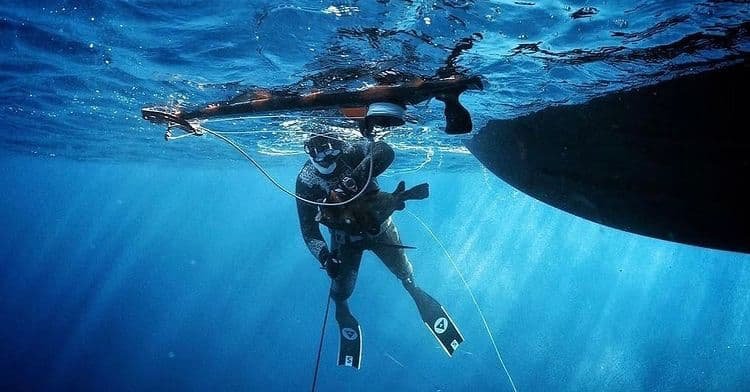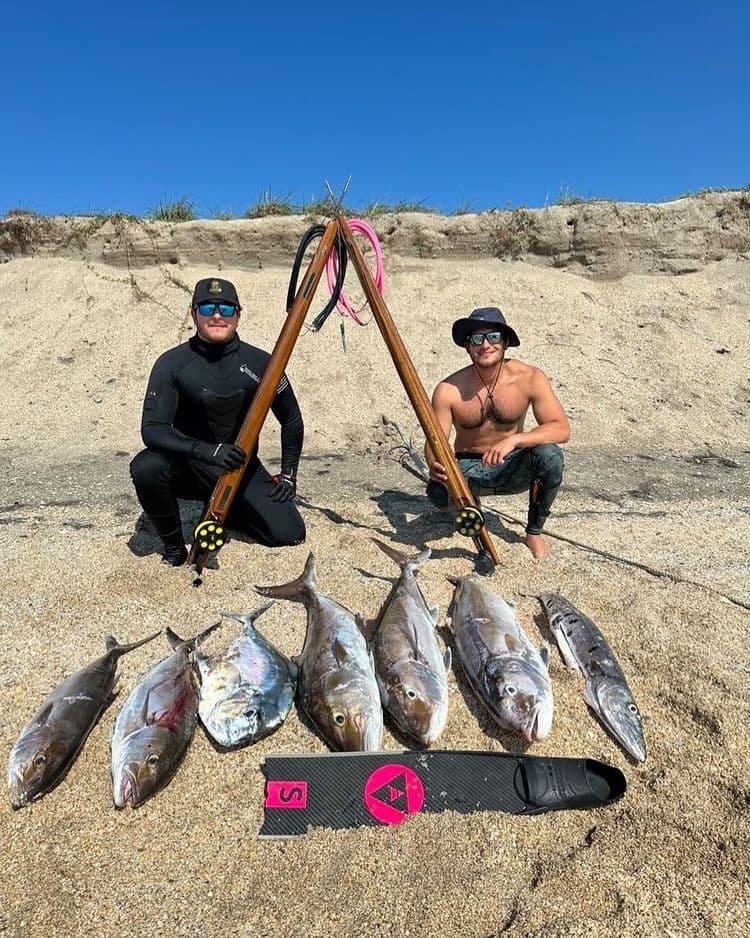
 Roni Essex
Freediver, Spearo, Creator
Roni Essex
Freediver, Spearo, Creator

 Roni Essex
Freediver, Spearo, Creator
Roni Essex
Freediver, Spearo, Creator
The question of whether fish feel pain has been the subject of scientific inquiry and ethical debate for many years. As our understanding of animal consciousness and welfare expands, it is crucial to explore the topic in relation to fishing practices. This article aims to delve into the current understanding of fish pain perception and examine how spearfishing, when conducted ethically, can be considered a responsible and humane method of catching fish.
The ability of fish to experience pain is a complex and debated topic within the scientific community. While fish lack the same brain structures and vocalizations associated with pain perception in humans, several pieces of evidence suggest that they possess the capacity to sense and respond to potentially harmful stimuli.
1. Nociceptors and Behavioral Responses: Fish have specialized nociceptors that detect harmful stimuli. They exhibit observable behaviors such as avoidance, rapid swimming, and rubbing against surfaces when exposed to potentially painful situations.
2. Neurological Studies: Research has shown that fish possess brain structures and processes associated with pain perception in other vertebrates. This indicates the potential for fish to experience pain at some level.
3. Analgesic Responses: Administration of pain-relieving medications, such as analgesics, has been found to alleviate nociceptive behaviors and stress responses in fish, further suggesting a connection between these behaviors and pain perception.
Considering these factors, it is reasonable to assume that fish may experience some form of pain or distress. Thus, ethical considerations should guide fishing practices to minimize unnecessary harm and suffering.

Spearfishing, when conducted responsibly and with a focus on ethical principles, can be considered a humane method of catching fish. Here's why:
1. Selective and Sustainable Harvesting: Spearfishing allows for selective targeting of specific fish species, sizes, and genders. This level of selectivity reduces the unintended bycatch associated with other fishing methods, minimizing harm to non-targeted species and promoting sustainable harvesting practices.
2. Reduced Environmental Impact: Unlike large-scale commercial fishing methods that can damage ecosystems and deplete fish populations, spearfishing is typically conducted in a more localized and controlled manner. This reduces the overall impact on marine habitats and contributes to the preservation of biodiversity.
3. Quick and Humane Capture: When spearfishing is executed skillfully and accurately, it can result in swift and efficient kills. The use of properly sized spearguns or pole spears can ensure a clean and instant kill, minimizing any potential suffering.
4. Appreciation of the Marine Environment: Spearfishing often requires a deep understanding of the marine ecosystem, including fish behavior, habitat knowledge, and environmental awareness. This promotes a deeper connection with nature and fosters a sense of stewardship and respect for the underwater world.
5. Personal Responsibility and Accountability: Ethical spearfishers prioritize the responsible use of natural resources. They adhere to local fishing regulations, promote catch-and-release practices when appropriate, and actively participate in conservation efforts to preserve fish populations and their habitats.

The question of whether fish feel pain remains a complex issue. While evidence suggests that fish have the potential to experience pain, ongoing research is necessary to fully understand their subjective experiences. In the context of fishing, spearfishing can be considered an ethical method when approached responsibly and with a focus on sustainability, selectivity, and minimizing suffering. By practicing ethical spearfishing, enthusiasts can enjoy the activity while demonstrating a commitment to the welfare of fish and the preservation of marine ecosystems.